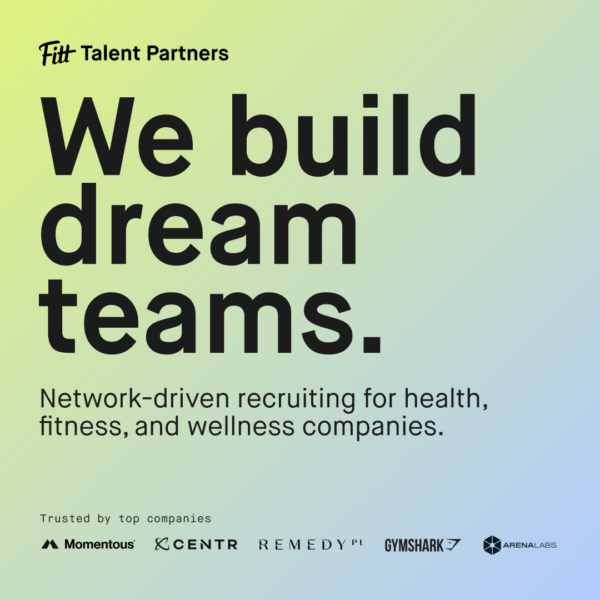From nutrition apps to prescription meal plans, food-as-medicine startups are serving up health from the inside out.
Spoiled
Our food is killing us.
- Type 2 diabetes cases are projected to double by 2045.
- 20% of deaths in the US are attributable to diet-related diseases.
- Over 30 years, obesity rates have doubled in adults, tripled in children, and quadrupled in adolescents.
Complicating matters, food insecurity is on the rise. During the pandemic, up to 27.5% of households struggled with hunger while much of the US population remains chronically malnourished.
The problem: Eating healthy can be simple, but it isn’t easy. For low-income communities disproportionately affected by diet-related diseases, access to fresh food remains a challenge. Worse, the FDA’s food division is notorious for turning a blind eye to food that makes us sick.
For what it’s worth: Not everything comes down to diet. One in four Americans don’t exercise enough, driving all-cause mortality. But, in pursuit of better health outcomes, new workout trends and miracle supplements often overshadow the role of just eating healthier foods.
DinneRx
Taking a holistic approach, the food-as-medicine movement views nutrition as integral to well-being. A step further, in the healthcare realm, personalized or medically tailored meals are used to prevent, manage, and treat illness.
Nothing new, ancient Greek physician Hippocrates is often credited with saying: “Let food be thy medicine, and let medicine be thy food.”
The science backs it up — studies have shown that eating more fresh fruits and veggies can lower rates of cardiovascular mortality, reduce the risk of obesity, and help manage type 2 diabetes symptoms.
But, whether it’s a lack of knowledge, willpower, or access, our unhealthy habits persist.
- 46% of US adults and 56% of children have a poor-quality diet.
- Healthy “prescribed” foods could save over $100B in healthcare costs.
- 85% of US healthcare spending stems from diet-related chronic diseases.
Now, as chronic, diet-related conditions worsen, startups are attempting to overhaul what we eat:
Season Health. A “digital food pharmacy,” Season Health landed $34M in April to provide affordable, personalized meal kits for chronic conditions. Working across health systems, grocers, and food delivery companies, Season is developing a cohesive platform for food as medicine.
Faeth Therapeutics. Approaching cancer as a metabolic issue—not just genetic—Faeth Therapeutics secured a $20M seed this January. The company is running clinical trials on nutrition plans that can “starve your tumor” and augment conventional drug-based treatments.
Oviva. Targeting the 300M Europeans who live with diet-related health challenges, digital diet and lifestyle coach Oviva nabbed $80M last year to scale its health tech business. A one-stop shop, the platform brings together certified dietitians, health systems, and insurers.
Foodsmart. A personalized telenutrition platform, Foodsmart works with a national network of registered dietitians, employers, and health plans to make eating well simple and affordable. Last year, it announced a $25M Series C.
NourishedRx. Securing $6M in seed funding to expand its AI-enabled meal plan platform, NourishedRx (previously Project Well) works with dietitians to help food-insecure and chronically ill patients find personalized, culturally relevant food solutions.
Food for Thought
The state of our health demands all hands on deck. From personalized nutrition solutions to metabolic health tech, there’s no such thing as too many cooks in the kitchen.
- Ready-to-eat. Eliminating guesswork and preparation, meal kit companies are making moves: Lumen partnered with Metabolic Meals, Sunbasket merged with Prüvit in a $1.3B deal, and Nestlé bought Freshly for $1.5B.
- Sugar high. Regulating blood sugar, digital clinics like Virta Health create meal plans to curb diabetes via nutrition while glucose monitoring startups like Levels provide real-time feedback on metabolic health.
- Gut feeling. Tailoring nutrition to your microbiome, ZOE, Seed Health, and DayTwo offer nutrition advice for diet-related diseases.
- Biohacking your breakfast. Using blood tests and DNA markers, startups COR and InsideTracker develop optimized meal plans based on your unique chemistry.
Down another aisle, grocers are a pivotal decision point in food selection. Stepping up, Kroger has its own telenutrition service, Heinen’s offers bespoke dietary counseling, and Schnuck Markets partnered with Spoon Guru to help shoppers track food purchases.
Zooming Out
An important distinction, and contradiction of sorts, food as medicine can be a luxury or basic necessity.
Spending lavishly, healing diets are the standard in wellness circles. Hacking nutrition, health optimizers will pay any price for incremental gains. Meanwhile, large swatches of the population subsist on too little or poor-quality foods.
Finally, connecting diet to actual health outcomes is a tricky process. Companies will need clinical trials to win over healthcare plans and skeptical consumers.
Punchline: Increasing access to nutritious meals while shifting healthcare spending to prevention, food as medicine startups hope to have an outsized impact on well-being.
👥 Peak Community
Faced with a loneliness epidemic, social wellness experiences are in high demand.
On the Fitt Insider Podcast: Othership CEO Robbie Bent discusses his hybrid platform at the intersection of physical recovery and mental health.
We also cover: the transformative power of community and how methodologies like breathwork, sauna, and ice baths are moving into the mainstream.
Listen to today’s episode here
⏸ Pressing “Pause”
Zwift is restructuring, laying off staff and “pausing” its hardware efforts.
Game on. A fitness company born out of gaming, Zwift enables virtual training and multiplayer competition for cycling or running. Until recently, the company was primarily focused on software and game development.
But… earlier this year, the company announced its own hardware line, teasing a smart bike and indoor cycling trainer set to debut this summer.
Time out. With economic uncertainty looming as connected equipment sales slow, Zwift is ending its hardware effort.
According to VeloNews, the company laid off up to 150 employees, primarily related to hardware development. Officially, Zwift said its “pausing” equipment, but the job cuts and scrapped launch suggest otherwise.
Across the industry. From indoor cycling to endurance tech, companies are correcting course as demand wanes:
- Peloton cut 2,800 jobs and replaced its CEO as shares cratered.
- Wahoo shed ~20% of its staff ahead of acquiring digital platform RGT Cycling.
- Beachbody reduced staff by 10% after acquiring smart bike maker MYXfitness in a SPAC deal last summer.
Zooming out: Sensing that connected equipment’s pandemic bubble may have burst, Zwift and others are bracing for economic turmoil, setting the stage for industry-wide restructuring.
Share this headline
📈 Market Watch
As the first quarter comes to a close, fitness operators are reporting earnings.
Ups and downs. After the workout-from-home gold rush and demise of gyms, IRL is rebounding as equipment makers correct course.
Planet Fitness. Beating earnings predictions, the high-volume, low-price gym increased revenue 67% YoY. Doubling down on Gen Z, teens receive free memberships this summer. Looking ahead, CEO Chris Rondeau envisions 4K US locations.
Life Time. With revenue up 57%, the “athletic country club” approached 674K members as of March 31. Revamping personal training and tapping pickleball’s rise while scaling co-working and apartment concepts, Life Time is eyeing growth.
F45 Training. The HIIT studio franchise grew revenue 175% YoY. With the goal of opening 20K studios worldwide, F45 is expanding onto campuses, military bases, and cruise lines while debuting new modalities, including Pilates.
Xponential Fitness. Notching 73% revenue growth, Xponential is on the upswing. Bolstering its omnichannel presence, the company opened 99 studios, debuted XPASS, launched XPLUS, and partnered with lululemon in Q1.
Beachbody. As revenue and digital subscriptions decline, Beachbody is getting back to basics by focusing on content and supplements. Downplaying its smart bike, CEO Carl Daikeler said connected fitness will remain, but “the tail won’t wag the dog.”
The big picture: Add Peloton’s mounting losses into the mix and it’s clear that the fitness industry is recalibrating. At-home or in-person, operators are still trying to make sense of the new normal, and so is Wall Street.
🛶 Ready to Row
A long time coming, Peloton is preparing to launch its connected rower.
TBD. A new video teased the “game-changing” equipment, although no release date or price point were provided.
Hoping to stem an ongoing backslide, the rower promises a full-body workout and high-priced machine, appealing to the Peloton faithful and would-be consumers beyond the biking crowd.
Supply and demand. The real question, though, is whether or not the rowing wars have become too competitive. While Peloton remained on the sideline, a wave of connected rowers scaled up:
- With $225M in funding, Hydrow notched 300% YoY growth in 2021, reaching 200K users.
- Ergatta raised $30M last year at a $200M valuation; sales of the game-based rower grew 4.5x YoY in 2021.
- Omnichannel brand CITYROW scored $12M last year, growing at-home sales 375% while also selling 64 franchises.
- Aviron, a gamified rower, secured $18.5M in February 2022 following a 700% YoY revenue spike in 2021.
Looking ahead: Betting that the rowing market remains lucrative and its own ecosystem still unmatched, Peloton hopes its smart ergometer can deliver a much-needed boost to morale — and its stock price.
Share this headline
💰 Finding Funding
As we’ve said, the world needs more health and fitness founders.
And one of the main goals in starting Fitt Insider was to support startups with content, capital, and resources.
Attention, please: That’s why we put together a list of nearly 100 investors backing health and fitness companies.
If you’re a founder looking for investors, we hope this is helpful! If you’re an investor who primarily/exclusively invests in this space, let us know and we’ll get you added.
📰 News & Notes
- Getaway goes beyond cabins with luxe campsites.
- Peloton and iFIT settle all open infringement lawsuits.
- Fitt Jobs: 850+ health and wellness careers are waiting.
- Amazon Alexa debuts features for caregivers, aging adults.
- hims & hers tops revenue predictions, posts breakout growth.
- Field Trip and Nue Life team up for at-home ketamine treatment.
- Hyperice pilots corporate mental health program with 100+ companies.
- Startup Q&A: iNSPIRETEK’s Annie Flamsteed on digital mental health for youth athletes.
💰 Money Moves
- HIIT studio franchise F45 Training received $150M in debt financing from Fortress Credit Corp. to support US expansion.
- Men’s fertility and sperm bank startup Legacy secured $25M in Series B funding.
More from Fitt Insider: The Rise of DTC Men’s Health - Couples therapy platform OURS landed $5M in a seed round from Serena Ventures, TMV, and others.
More from Fitt Insider: Relationship Wellness - Stix Golf, makers of affordable clubs, raised $10M in a Series A round.
More from Fitt Insider: Recreation’s Renaissance - Good Good, an Iceland-based maker of low-carb breakfasts and keto snack bars, secured $20M in a Series B round.
- Hyperhuman, creators of software for video-based fitness content production, pulled in €550K ($572K) and will expand internationally.
- Home-based care platform Reverence launched after raising $9.5M in a funding round led by Target Global.
More from Fitt Insider: House Call - Mahmee, a maternal health startup, added $9.2M in a Series A round led by Goldman Sachs.
- Monument, a telehealth company treating alcohol use disorder, acquired Tempest, a digital alcoholism recovery program.
- Smart basketball maker SIQ Basketball closed $3M in a funding round led by KB Partners.
- Mirvie, a pregnancy health platform, added $60M in a Series B round led by Decheng Capital.
Today’s newsletter was brought to you by Anthony Vennare, Joe Vennare, Ryan Deer, and Melody Song.
 Illustration: Courtney Powell
Illustration: Courtney Powell
